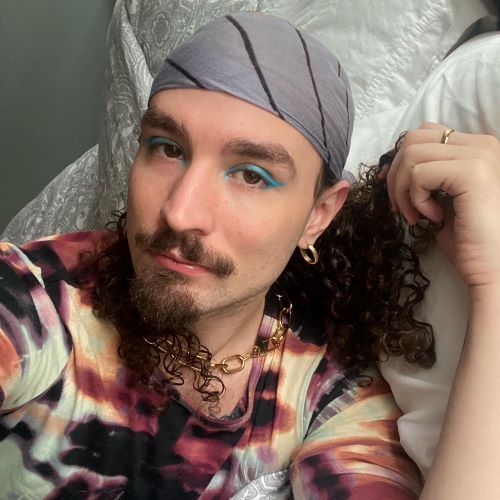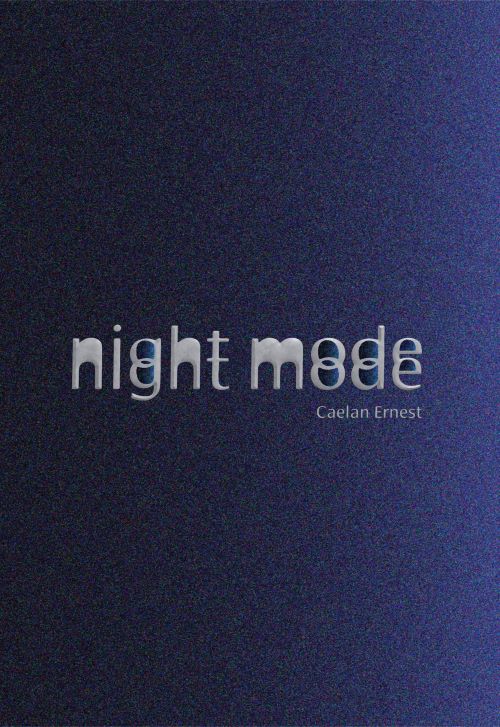night mode is a book-length serial poem that oscillates between digital and IRL topias, blurring the line between the two. In five poetic sequences and a brief coda, this deeply visceral and darkly erotic book explores themes of abjection, violence, limerence, love, and desire. The speaker navigates shifts in their identity in response to the encounters and exchanges they make, allowing each poem to expand upon the last— rupturing into new formal landscapes that give way for a pastiche wasteland of internet speech and cybernetic bodies. Through music, lyric, fragmentation, and play, night mode is an artifact of exploration and identity.
"In a time defined by algorithms and public violence, Caelan gives fruity, punk, trans lyrics. night mode invites us to search for meaning after class, on hookup apps, in the club. These poems look at intimate exchanges, acute losses, mixed desires—wondering how so much can happen 'between one party/ & the next.' Written from the thaw of gender binaries, they form the shared location of queerness and pleasure, somewhere 'the glitch seems to be coming from the inside. Vibrating out'."
—Joshua Escobar, Bareback Nightfall
"To read Caelan Ernest’s iconic debut night mode, is to enter the pool at le bain’s ON TOP with Arca & Sophie playing b2b on the decks in shadows of the fog machine. On the screen, on the dancefloor, Ernest imagines the delightful consequences of a trans terror in public when 'all the forms our bodies might be capable of taking' manifest into all possible selves. Each line cuts through the perspective-pleasure axis between screen and horizon, gesture and code. Ernest ascribes body parts to phones and technology, transforms those parts—machine, flesh—entirely for queer pleasure. Against the weaponized surveillance state, against the hapless gig economy, night mode perverts visibility toward an excess of decadence & glamour, 'digital deviancy,' & the sexy congruence between machine & skin as simultaneous organs of perception and eros. The process of relation may be transformative, but the poetic relative with selves past, present, & future is utterly trans/formative. night mode is Ernest’s hyperpop, hyperpoetic, trans cyborg manifesto on love & of course–lust."
—Andrea Abi-Karam, Villiany





